Foundations of Political Philosophy
Explore the differences between ancient and modern political philosophy, with a focus on texts by Aristotle and Machiavelli.
Summer 2018
Washington, DC
American higher education, or rather a part of it, is today the envy of the world, producing and maintaining research scientists of the highest caliber. But liberal education is another matter. The dominant opinion proclaims that no shared set of ideas, no common body of knowledge, and no baseline set of values or virtues marking an educated human being exist. Universities increasingly fail to give students more than a dim intimation that a liberal education has a distinctive shape and a coherent and cumulative content.
Yet, properly conceived, a liberal education provides invaluable benefits for students and the nation. For most students, it offers the last chance to read widely and deeply, to acquire knowledge of the opinions and events that formed them and the nation in which they live, and to study other peoples and cultures. And the nation benefits as well, because a liberal democracy presupposes an informed citizenry capable of distinguishing the public interest from private interest, evaluating consequences, and discerning the claims of justice and the opportunities for — and limits to — realizing it in politics.
In this opening week, led by Hertog Political Studies Program Dean Peter Berkowitz, students explore what liberal education is and why it is necessary for a free society. Among the questions students will discuss include: Why is a liberal education necessary? What are the benefits of liberal education? What is the relationship between the cultivation of moral virtue and liberal education? Why should the study of classical authors be emphasized in an age of scientific progress? Is increasing specialization helpful or harmful to the progress of civilization? What are the tensions inherent in liberal education, and how might they be resolved?
Images: Henry Holiday, Aspasia on the Pynx, 1888 | Pesellino, Seven Liberal Arts, ca. 1440
Peter Berkowitz on Liberal Education
This one-week course will take place in Washington, DC. It is a full-time commitment for Monday–Friday, with required sessions in the morning, afternoon, and some evenings.
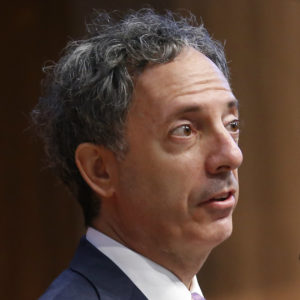
Peter Berkowitz is the Tad and Dianne Taube Senior Fellow at the Hoover Institution, Stanford University. He studies and writes about, among other things, constitutional government, conservatism and progressivism in America, liberal education, national security and law, and Middle East politics.

Peter Berkowitz is the Tad and Dianne Taube Senior Fellow at the Hoover Institution, Stanford University. He studies and writes about, among other things, constitutional government, conservatism and progressivism in America, liberal education, national security and law, and Middle East politics.
He is the author of Constitutional Conservatism: Liberty, Self-Government, and Political Moderation (Hoover Institution Press, 2013); Israel and the Struggle over the International Laws of War (Hoover Institution Press, 2012); Virtue and the Making of Modern Liberalism (Princeton University Press, 1999); and Nietzsche: The Ethics of an Immoralist (Harvard University Press, 1995).
He is the editor of seven collections of essays on political ideas and institutions published by the Hoover Institution: Renewing the American Constitutional Tradition (2014); Future Challenges in National Security and Law (2010); The Future of American Intelligence (2005); Terrorism
He taught constitutional law and jurisprudence at George Mason University School of Law from 1999 to 2006, and political philosophy in the department of government at Harvard University from 1990 to 1999. He holds a J.D. and a Ph.D. in political science from Yale University, an M.A. in philosophy from the Hebrew University of Jerusalem, and a B.A. in English literature from Swarthmore College.
Readings:
Discussion Questions:
Readings:
Discussion Questions:
Readings:
Discussion Questions:
Readings:
Discussion Questions:
See previous day’s questions.
Readings:
Discussion Questions:
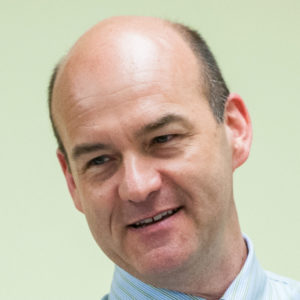
Robert Barlett
Robert C. Bartlett is the Behrakis Professor of Hellenic Political Studies at Boston College. His principal area of research is classical political philosophy, with particular attention to the thinkers of ancient Hellas, including Thucydides, Plato, and Aristotle. He is the co-translator of a new edition of Aristotle’s Nicomachean Ethics.
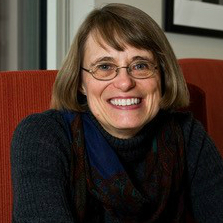
Vickie Sullivan
Vickie Sullivan is the Cornelia M. Jackson Professor of Political Science and teaches and studies political thought and philosophy. She also maintains teaching and research interests in politics and literature. She has published extensively on Montesquieu and Machiavelli and is the co-editor of Shakespeare’s Political Pageant.

Peter Berkowitz
Peter Berkowitz is the Tad and Dianne Taube Senior Fellow at the Hoover Institution, Stanford University. He studies and writes about, among other things, constitutional government, conservatism and progressivism in America, liberal education, national security and law, and Middle East politics.
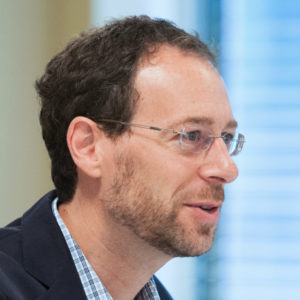
Bryan Garsten
Bryan Garsten is Professor of Political Science at Yale University. He writes on questions about political rhetoric and deliberation, the meaning of representative government, the relationship of politics and religion, and the place of emotions in political life.
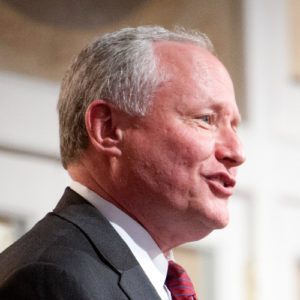
William Kristol
William Kristol is editor at large of The Weekly Standard, which, together with Fred Barnes and John Podhoretz, he founded in 1995. Mr. Kristol has served as chief of staff to the Vice President of the United States and to the Secretary of Education. Before coming to Washington in 1985, Kristol taught politics at the University of Pennsylvania and Harvard’s Kennedy School of Government.

Matthew Continetti
Matthew Continetti is resident fellow at the American Enterprise Institute, Prior to joining AEI, he was Editor in Chief of the Washington Free Beacon. His articles and reviews have appeared in The New York Times, The Wall Street Journal, and The Washington Post.
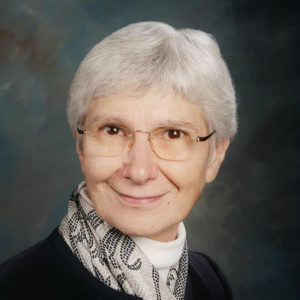
Amy A. Kass
Amy Apfel Kass (1940 – 2015) was a senior fellow at the Hudson Institute, Senior Lecturer Emerita in the humanities at the University of Chicago, and coeditor of What So Proudly We Hail: The American Soul in Story, Speech, and Song. She was an award-winning teacher of classic texts.
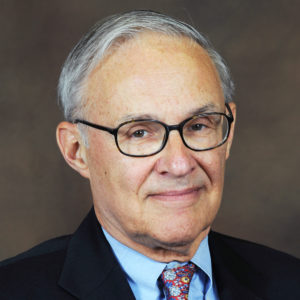
Leon R. Kass
Leon R. Kass, M.D., is the Addie Clark Harding Professor Emeritus in the Committee on Social Thought and the College at the University of Chicago and the Madden-Jewett Chair at AEI. He was the chairman of the President’s Council on Bioethics from 2001 to 2005. He has been engaged for more than 40 years with ethical and philosophical issues raised by biomedical advances and, more recently, with broader moral and cultural issues.